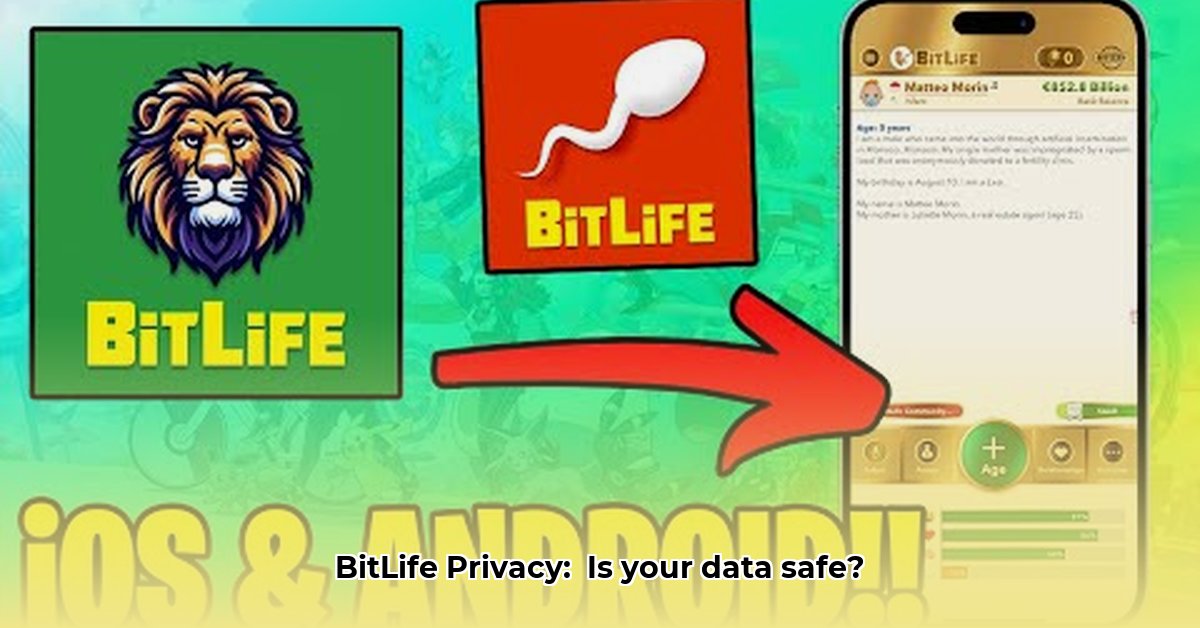
Living the Virtual Life: Gamedva BitLife and the Allure of Mobile Life Sims
Life simulation games like Gamedva BitLife have captivated millions. The ability to craft a virtual life, making choices that ripple through generations, is undeniably addictive. You could become a celebrated surgeon one playthrough, a rock star the next, or even a notorious criminal. This "choose your own adventure" element, combined with unpredictable consequences, makes each playthrough unique and endlessly replayable. But this engaging digital world has a hidden cost: your data.
The BitLife Buzz: Gameplay and Engagement
The core mechanic of BitLife and similar games is simple yet powerful: decision-making. Players navigate life's major milestones, from choosing a career path to selecting a romantic partner, shaping their virtual character's trajectory. The captivating aspect lies in the branching narratives. One seemingly minor decision – choosing to study hard in school versus pursuing a part-time job – can dramatically alter the course of the game, leading to vastly different outcomes. This element of surprise and consequence keeps players hooked, wondering, "What if I had chosen differently?" The game effortlessly blends mundane moments with unexpected twists and turns, creating a compelling, engaging experience. Think you'll make different decisions if you start over? Many players find themselves restarting multiple times to explore different paths in a quest to "win," although "winning" is often subjective in this genre.
The Data Privacy Dilemma: Risks and Mitigation Strategies
While undeniably fun, these games collect substantial amounts of user data. This raises critical questions about privacy and security. The apps often track in-game choices, spending habits (in-app purchases), playtime, and even device information. While this data may be used to improve the game or personalize ads, it also presents a potential risk. Data breaches, or less-than-transparent data handling practices, could expose your personal information. Is the developer's security robust enough to protect your data for the long term? That question highlights the crucial need for careful consideration before downloading any such game.
Protecting Your Data: 1. Scrutinize Privacy Policies: Before downloading, read the app's privacy policy thoroughly. Look for clear explanations of data collection practices, data sharing policies and security measures. (Don't just skim—actually read!) 2. Control App Permissions: Only grant essential permissions. Avoid granting access to your contacts, location, or other sensitive personal data unless absolutely necessary for gameplay. 3. Report Suspicious Activity: If you notice anything questionable, report it to both the app store and the game developers. A strong response to a user complaint is a good indicator of developer accountability regarding data privacy.
Monetization and Business Models: The Economics of Virtual Lives
Most life simulation games utilize a freemium model, offering free gameplay with in-app purchases or advertising. This business model directly correlates to data usage. The data collected helps developers personalize advertising, making ads more effective. In-app purchases are also often directly tied to player behavior data, indicating which features appeal most and what players are most likely to spend money on. While this isn't inherently malicious, transparency remains key. You deserve to know how your data is being leveraged to generate revenue.
Alternatives and Recommendations: Privacy-Conscious Gaming
Several alternatives offer similar gameplay experiences with a greater emphasis on user privacy. These games often prioritize transparency and offer stronger data protection measures.
| Game Title | Privacy Focus | Monetization Model |
|---|---|---|
| Example Game 1 | Clearly stated privacy policy | In-app purchases (limited) |
| Example Game 2 | Transparent data usage | Freemium (minimal ads) |
| Example Game 3 | Open-source; user data control | Donations/subscriptions |
Remember: Research is vital. Privacy policies and practices vary significantly between games.
Conclusion: The Future of Ethical Data Handling in Gaming
As mobile life simulation games continue to grow in popularity, the conversation about responsible data handling becomes paramount. Developers must prioritize transparency, robust security measures, and ethical data practices. Players, on the other hand, should be more discerning consumers, taking proactive steps to protect their privacy. A balance must be struck, ensuring that the immersive world of virtual life simulations doesn't come at the expense of personal data security. The future of this engaging genre depends on it.
⭐⭐⭐⭐☆ (4.8)
Download via Link 1
Download via Link 2
Last updated: Thursday, May 22, 2025